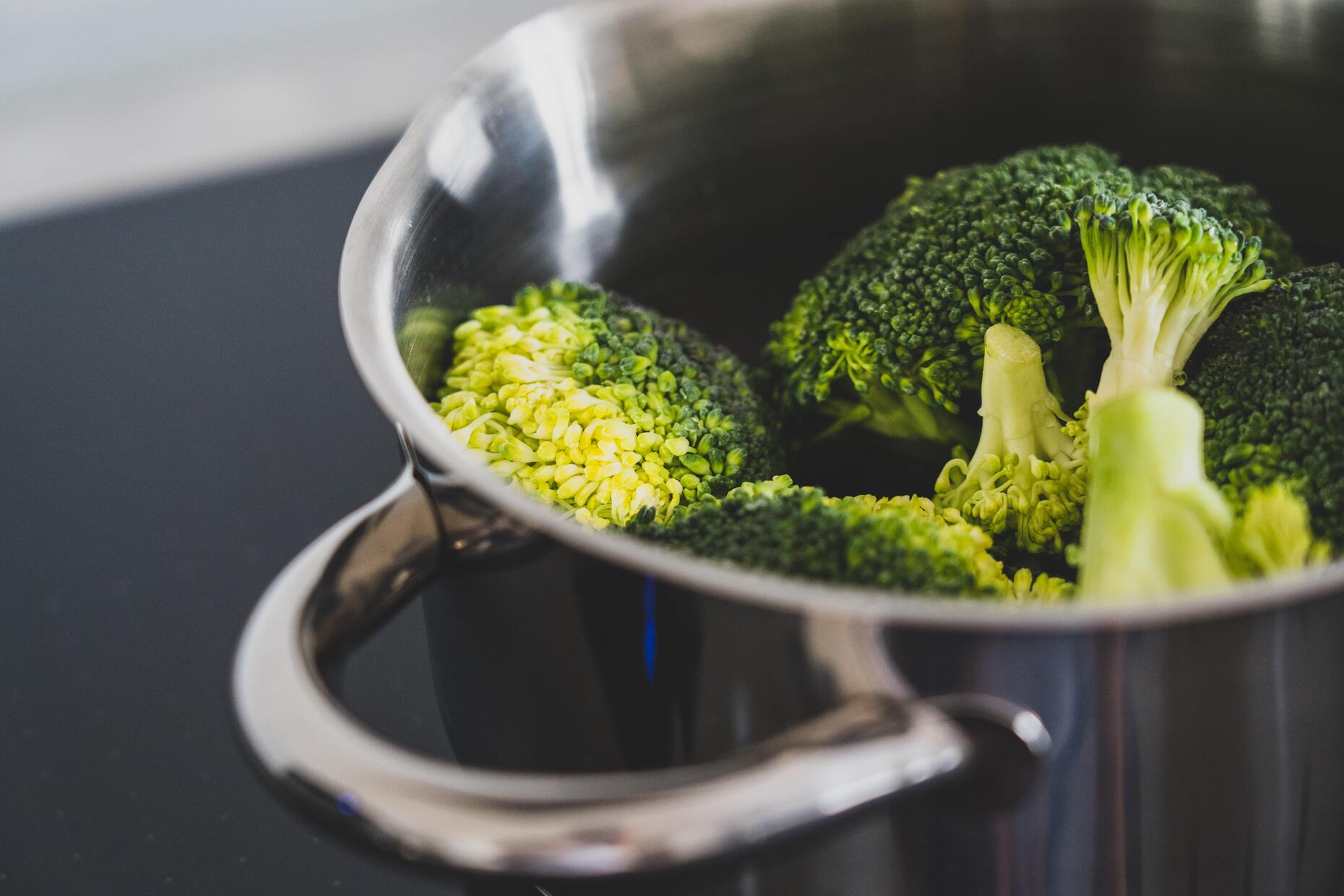We all want a healthy immune system, one that keeps us as protected as possible from illness. But how can you boost your immunity, or more specifically, what are the best foods that boost your immune system?
For starters, the immune system is a complicated beast — an intricate structure of cells, proteins and organs that work together to fight off infection and disease. The gut microbiome — a complex community of microorganisms including bacteria (over 800 different species), fungi, viruses and parasites — is constantly interacting with and sending signals to your immune system, 70-80% of which lies right behind a razor-thin, nearly invisible mucus layer next to your gut.
[[mailing_list]]
While the relative health of your immune system is influenced by a variety of factors — including genetics, age, vaccines, sleep, exercise, metabolic status, and smoking and substance use — scientists now believe that your diet is a significant factor because what you eat directly affects your indigenous gut microbiota, which in turn influence the development and regulation of your immune defenses (via interaction with the epithelium and the gut-associated lymphoid tissue).
While it isn’t likely that any one (or two or three) individual foods will boost your immunity, intentionally consuming at least an array of the “best immunity foods” will help ensure your immune system gets enough of the nutrients that are associated with its optimal functioning.
How can foods boost immunity?
Put simply, dietary patterns that emphasize a variety of nutrient-dense foods may better prepare the body for microbial attacks and inflammation. In our report, Gut Health And The Immune System, we explain (1) what the immune system is; (2) what factors stress it; (3) how gut health affects it; and (4) how you can modulate gut health to improve immunity.
Among the dietary suggestions that help you avoid adverse gut (and immunity) developments, or maintain a healthy gut, the vital ones include:
-
Cutting way back on processed foods, added sugars and bad fats (saturated, trans).
- Focusing upon a diet rich in fiber, which has shown demonstrated benefit in supporting the microbiome and reducing inflammatory responses. Scientists believe that certain byproducts created from breaking down these foods, such as short-chain fatty acids (SCFAs), are important signaling molecules that help you maintain immune homeostasis. Diet is not the only factor involved, but its impact appears significant, even though much more research remains to be done to understand mechanisms, causality, and the relative merits of various nutritional and other therapies.
- Adding in the consumption of foods that can help increase biodiversity in the gut and support immune homeostasis — such as probiotic-rich foods (including yogurt and other fermented foods such as kimchi, sauerkraut, and kefir) — can prove helpful, especially for the symptom relief they bring to a “dysbiotic” gut (a hallmark of irritable bowel syndrome and other gastrointestinal disorders).
Foods that boost immune system
Each stage of the body’s immune response relies on the presence of many macro- and micronutrients. All are important: a deficiency of a single nutrient can change the body’s immune responses. We’ve compiled a list of nutrients, critical for immune function, and top foods that that boost your immune system. While additional nutrients — such as B vitamins, iron, magnesium, and selenium — are also immune-strengthening, if we had to choose our top 8 immune-boosting nutrients, they would be these:
Fiber:
Vegetables, fruits, whole grains, nuts and seeds
As we highlighted above, fiber contributes to heightened immunity and reduced inflammation — both of which are associated with more positive health outcomes, including reduced risk of metabolic and chronic diseases (such as obesity and type 2 diabetes). Some high fiber foods include edamame, broccoli, berries, avocado, whole grains and apples.
Vitamin A:
Liver, kidneys, eggs, leafy-green and red/organic/yellow vegetables
This micronutrient helps provide protective epithelial and mucosal barriers and influencers immune cell development. It is available in two types: Vitamin A (retinol) is found in animal products such as liver, kidneys and eggs; provitamin A (carotenoids) is found in plants such as carrots, sweet potatoes, spinach, and apricots. As a general rule, leafy greens and red-orange-yellow fruits and vegetables contain the most vitamin A. Since vitamin A is a fat-soluble vitamin, your body stores what it doesn't need; thus, it's most bioavailable when consumed with healthy fats. However, too much vitamin A (more than 3,000 micrograms/day) can depress the immune system, and is toxic if over-consumed (leading to headache and skin rashes, and in severe cases lung cancer and birth defects in babies if the pregnant mother takes too much).
Vitamin C:
Citrus fruits, key vegetables, ginger
Well-known for its role in stimulating the immune system, vitamin C is found in citrus fruits, brussels sprouts, kale, ginger, and red or yellow bell peppers (which contain nearly three times the amount of vitamin C as a Floria orange!)
Vitamin D:
Eggs, fatty fish, fortified milks and juices, 15 minutes of sunshine
Vitamin D helps regulate immune response systems and boosts immune cell functions. Vitamin D can be achieved by being in the sun at least 15 minutes each day or by consuming it in eggs and fatty fish like cod or salmon. To find out if your beverages are fortified, check the nutrition label: you’ll see a percentage in the DV (daily value).
Zinc:
Oysters, shrimp, crab, lean proteins, legumes, nuts, and seeds
Zinc is necessary for healthy functioning of the immune system and it’s also an antioxidant with anti-inflammatory properties. It is most abundant in animal foods such as oysters, shrimp, crab and lean meats, but it is also present in legumes, nuts and seeds.
PUFAs:
Fatty fish (e.g., salmon)
Omega-3 polyunsaturated fatty acids (PUFAs) are not only associated with heart health benefits, but also have important immune-regulatory functions. Omega-3s play an anti-inflammatory role, ensuring that excessive or prolonged immune responses do not occur. The best sources are fatty fish (such as salmon, trout, anchovies, sardines, and herring) because they have a healthy balance of the two omega-3 fatty acids most associated with optimal regulation of the immune system: DHA and EPA.
Phytonutrients:
Broccoli, avocado, nuts and seeds, artichokes
Polyphenols and other phytonutrients have antioxidant properties and have been shown to reduce oxidative stress, support the liver to promote efficient biotransformation and detoxification, and modulate gut microecology — processes which help to boost overall immune system function. Antioxidants work against free radicals, disease-causing agents. An example: Vitamin E is a fat-soluble vitamin and antioxidant, found in broccoli, avocado, nuts and seeds and their corresponding oils. Other sources include red and kidney beans, berries, and artichokes.
Protein:
Lean meats, seafood, eggs, beans, yogurt, nuts, and seeds
Specific amino acids from protein are critical in immune cells that combat pathogens. Protein can come from animal or plant sources, including lean meats, seafood, eggs, beans, yogurt, and nuts and seeds.
Best supplements for immune system
While it’s possible to get all of the nutrients you need through a healthy diet, immune system supplements can support what you’re not able to get daily. Vitamin supplements for populations at risk of nutrient deficiency, such as the elderly, have proven to be helpful in boosting the immune system. Similarly, supplementation with vitamin D is often recommended for individuals residing in sun-deprived locations (such as the Pacific Northwest in winter). Speak to your medical professional before starting a supplement.
To supplement your diet, we developed Eden’s Synbiotic Supplement not just to improve digestive functioning and comfort (i.e., reduce symptoms of gastrointestinal distress), but also to improve markers of metabolic, cardiovascular and immune health. This synbiotic blend contains five carefully selected prebiotics, four strains of probiotics, and five key polyphenols.
[[product]]
Because Eden’s is a synbiotic, its probiotic, prebiotic and polyphenol components work in concert to develop and fuel select health-promoting probiotic bacteria in the colon, making them more effective at improving the balance of microbiota in your gut than if you ingested these components separately. Learn more: What is a synbiotic?
Key takeaways
What are the best foods to boost your immune system? Diet plays a large role in the composition of our gut microbes, and our gut microbes play a significant role in immune system modulation. Eating a variety of nutrient-packed foods (such as fruits and vegetables, legumes, whole grains and lean proteins) and supplementing when advised is the best way to ensure you’re providing your immune system with the nutrients it needs to function well. Diet is just one piece; exercise, staying well-rested and avoiding smoking are among the other lifestyle variables that are so important to maintaining a strong immune system. Learn more: Does gut health impact immunity?

